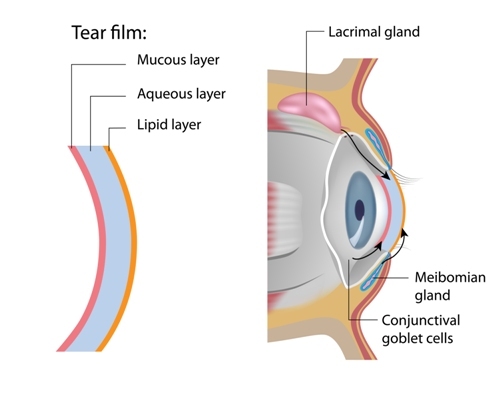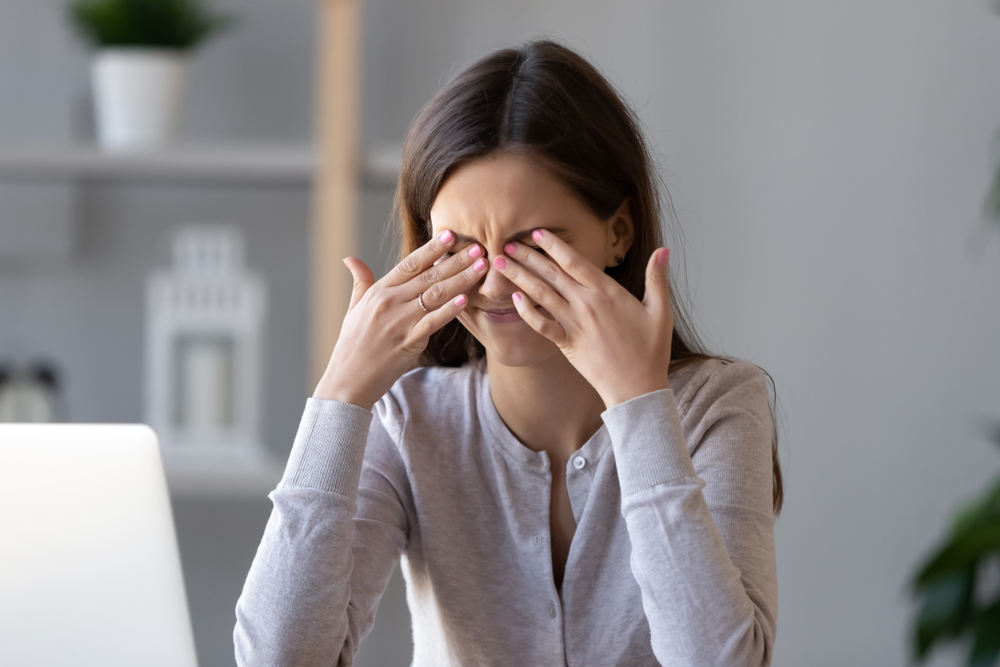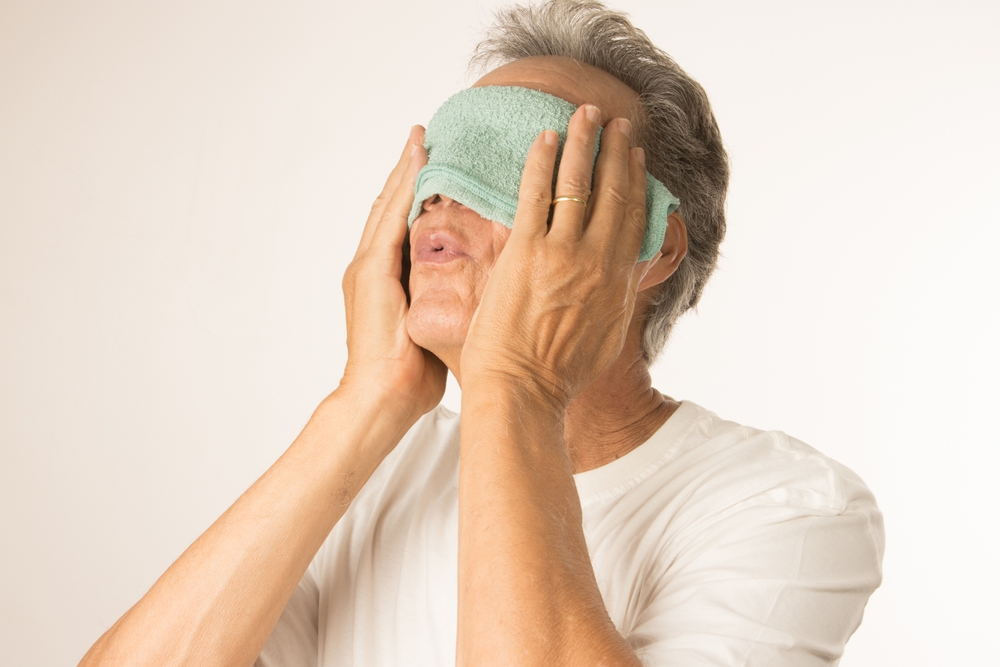Do your eyes frequently feel irritated? It could be because you have dry eyes. However, having dry eyes isn’t uncommon.
Not only are they uncomfortable, but they can also lead to serious issues with your eyes and even vision loss if left untreated. Fortunately, dry eyes are highly treatable.
However, to receive dry eye treatment, you must see your eye doctor when you have dry eyes. Keep reading to discover why you should see your Omaha eye doctor about dry eyes!
What are Dry Eyes?

Dry eyes occur when your eyes aren’t producing enough tears or the tears produced are lacking in quality. How do you know if you have dry eyes? There are a few key symptoms, including:
- Eye redness
- Burning
- Stinging
- Watering
- Mucus buildup around the eyes
- The feeling of grit in the eyes
If you have several of these symptoms, your eyes are likely dry. You can experience dry eyes for several reasons.
Sometimes, dry eyes are temporary and caused by a dry environment, dehydration, improper contact lens use, or other temporary factors. In such cases, correcting the triggering factor should alleviate dry eyes.
However, dry eyes can also be caused by a chronic condition called dry eye syndrome. If you have dry eye syndrome, these temporary triggers may worsen your symptoms, but correcting the trigger won’t fully alleviate your symptoms. The only solution usually for patients with dry eye syndrome is to seek treatment.
What is Dry Eye Syndrome?
Dry eye syndrome is a chronic eye condition caused by an issue with the quality of your tear film. Your tear film is the layer of tears distributed over your eye each time you blink.
Your tear film keeps your eyes healthy by providing moisture, flushing out debris, and preventing bacteria buildup. But your tear film doesn’t provide enough moisture when you have dry eye syndrome.
This is usually due to an imbalance in the composition of your tears. Your tears have three components: mucus, water, and oil.
When your eyes struggle to produce enough of one of these components, your tears can’t moisturize or lubricate them, and they become dry. Dry eye syndrome is more common in older adults and women, especially women going through menopause.
It’s also often associated with inflammatory skin conditions like rosacea. However, anyone can develop dry eye syndrome. If you have dry eye syndrome, it’s crucial to receive treatment, as having dry eyes for an extended time can have dire consequences.
The Long-Term Effects of Dry Eyes

Your eyes need moisture to stay healthy. Without moisture, your eyes cannot wash away foreign contaminants that may get into your eye, like dust.
They’re also unable to flush out harmful bacteria. This increases your risk for corneal abrasions and infections.
Corneal abrasions occur when small particles scrape the surface of your eye. While corneal abrasions tend to heal quickly if you have a healthy tear film, they’re much more likely to become infected if your eyes are dry.
This can lead to corneal ulcers, which are open sores on the surface of the eye. Corneal ulcers are very painful and can cause permanent damage to the eye.
Even after corneal ulcers heal, they tend to form scar tissue, which can cause vision problems and even partial vision loss. You can avoid the consequences of corneal abrasions and infections by seeking treatment if you experience dry eye symptoms. Seeing your Omaha eye doctor when you have dry eyes can save your vision.
Diagnosis and Treatment of Dry Eyes
If you frequently experience dry eye symptoms, it could be because of dry eye syndrome. When you visit Omaha Eye for dry eye symptoms, we can assess your tear quality by taking a sample of your tear film.
By analyzing your tear composition, we’ll be able to determine if you have dry eye syndrome. If you’re diagnosed with this chronic eye condition, we’ll create a customized treatment plan tailored to your needs. The best way to treat dry eye syndrome is by determining its root cause. Understanding what’s making your eyes dry and irritated will allow our team to relieve your symptoms and help you see the world more clearly.
There are many noninvasive treatments for dry eye syndrome. Your Omaha eye doctor at Omaha Eye will start by recommending simple lifestyle changes. Lifestyle changes can help many patients find relief. However, you may also need to explore medications or other professional treatments to see the improvement you need.
Lifestyle Changes and Home Remedies

You can do a few things to treat your dry eyes at home. You can use over-the-counter artificial tears and eyelid wipes to clean your eyes.
You can also get more omega-3 fatty acids in your diet. Omega-3 fatty acids are a nutrient that’s good for tear production.
To increase your consumption of omega-3 fatty acids, you can try incorporating fatty fish like salmon and tuna. You can also take supplements to achieve the same effect.
Other home remedies include:
- Limiting screen time
- Using a warm, wet compress over the eyes
- Use a humidifier in your home or office
If you have dry eye syndrome, only making lifestyle changes may not be enough to alleviate your symptoms. However, they can help lessen them and make you more receptive to other treatment options.
Professional Dry Eye Treatment Options
We can offer a variety of professional treatments for dry eye syndrome at Omaha Eye, including prescription eye drops and in-office therapies. Exactly what treatment or treatments you’ll receive depends on your unique case of dry eye syndrome.
Your eye doctor at Omaha Eye will be able to devise a treatment plan that will finally give you the dry eye relief you need. Are you tired of living with dry eyes? Take the next step by requesting your appointment today at Omaha Eye in Omaha, NE!


